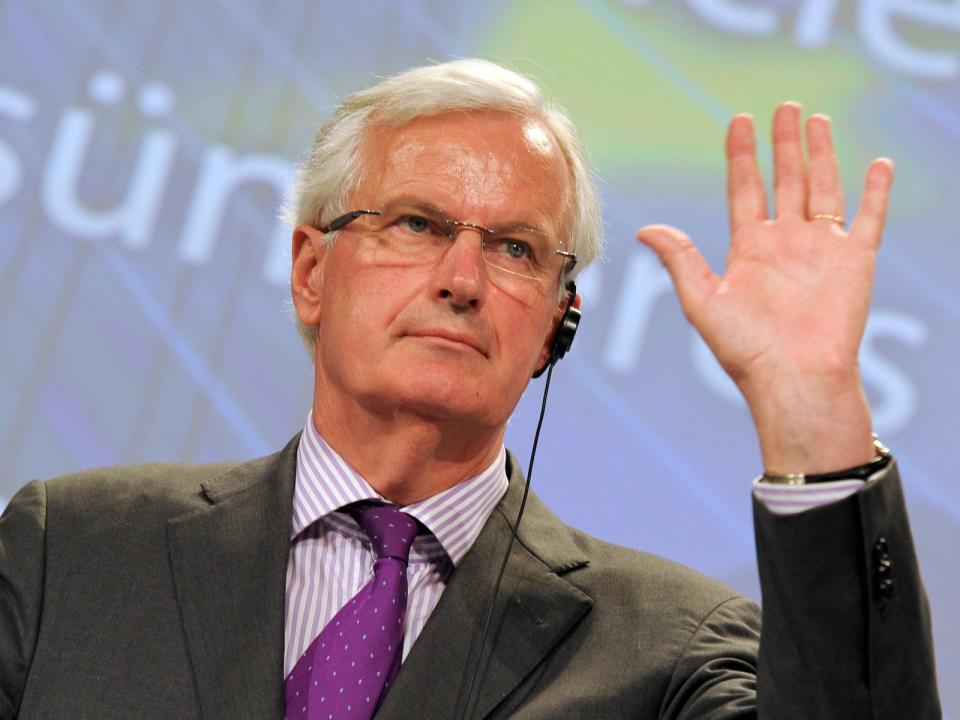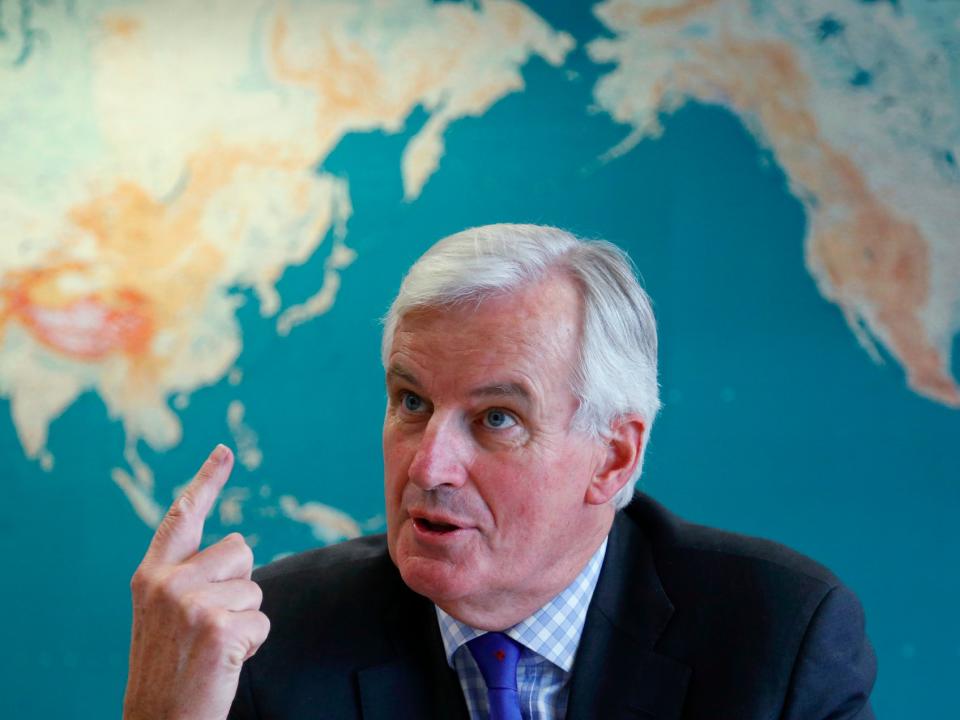Here's what you need to know about Michel Barnier, the EU's Brexit negotiator

Reuters
Michel Barnier, the man picked by European Commission president Jean-Claude Juncker to lead the EU's Brexit negotiations, is used to a hostile reception.
As French foreign minister between 2004 and 2005, his first priority was to smooth relations between his country and a US neo-Conservative establishment angry at France's refusal to back the 2003 Iraq War.
By the time he arrived in Washington for meetings with his counterparts Congressional cafeterias had renamed French fries as Freedom fries.
Then, as the EU's internal markets commissioner between 2010 and 2014, he led a post-crisis push to regulate banks, markets and hedge funds in the face of stiff opposition on many reforms from the UK. Barnier was called the "scourge of the City" in the UK press and seen as a threat rather than a partner in the reform of finance after the 2008 crisis.
During that time Barnier spent days and nights in protracted negotiations on dozens of financial services reforms, from rules on derivatives transactions to caps on bonuses. The latter, passed in 2013, still rankles with the UK – it was the first time the Treasury was outgunned on a piece of financial legislation.
Once again, with negotiations on Brexit set to start soon, he's getting the same stony welcome. The UK government reacted to the news of his appointment without even mentioning his name, saying it looked forward to working with "representatives" from the EU.
While the City might have disagreed with his policy, there was grudging respect for his will. So it made sense for Juncker to pick Barnier for another job that would involve getting potentially hostile parties to agree within a tight timeframe. Barnier works hard, and expects the same from his team.
The other reason for picking Barnier was his standing in the European Parliament. The parliament has to ratify any agreement between the UK and EU, and its members often diverge in views between themselves and the commission. Getting them to agree on something can be tough, but as internal markets commissioner, Barnier made a point of involving the parliament in an earlier stage than his predecessors and won the respect of many MEPs. This will come in handy down the line.

Reuters"I am very glad that my friend Michel Barnier accepted this important and challenging task," Juncker said on Wednesday.
"I wanted an experienced politician for this difficult job. Michel is a skilled negotiator with rich experience in major policy areas relevant to the negotiations."
While he's often painted as an anti-British political insider from the French establishment, Barnier has more layers than at first glance.
For a start, he's not a traditional Parisian politician. In the early 1970s, aged just 21 he became one of the youngest ever local representatives of his alpine region, the Savoie, before breaking into the national government six years later. Before becoming Europe's financial services commissioner, he spent two years as France's minister for agriculture, representing France's rural community, rather than its business or banking interests.
Secondly, with all the post-crisis financial reforms, Barnier was seen by the UK to be a tool of the French government to rob the City of its competitive advantage as a financial centre and hand the baton on to Paris.
But Barnier wasn't so much anti-City as sceptical about finance as a whole. When he proposed reforms of commodities derivatives in 2011, Barnier railed against the "over-financialisation" of the real economy, blaming speculators for volatile grain prices. Those aren't the words of someone whose main goal is to steal the City away for mainland Europe.
Finally, he's not as averse to Anglo-Saxon thinking as some might assume. Barnier might not be entirely comfortable giving speeches in English but he's no stranger to the UK/US alliance that so often butted heads with EU on trade and corporate policies and is open to its thinking.
When he was starting out as a young French politician, he went on a research program to the US. While there he fell in with the Kennedy family, becoming friends with Joseph Kennedy II, the eldest son of Robert Kennedy. The experience gave him more exposure to non-French politics, and at an earlier age than many of his peers.
So, while it seems like Barnier is a provocative choice from Juncker, he might prove a more open negotiator than the UK might think at first glance. The bonus caps weren't even his idea.
NOW WATCH: Nobody wants to buy 50 Cent's massive $6 million mansion
See Also:
UK fintech startups raised £40 million in July, showing Brexit hasn't killed the hot sector
British consumers are losing confidence in the economy faster than during the financial crisis
SEE ALSO: A former French minister will lead post-Brexit negotiations between the EU and Britain

 Yahoo Finance
Yahoo Finance 
